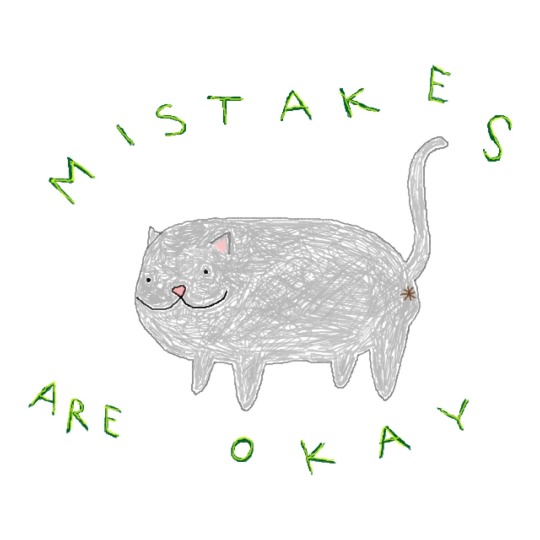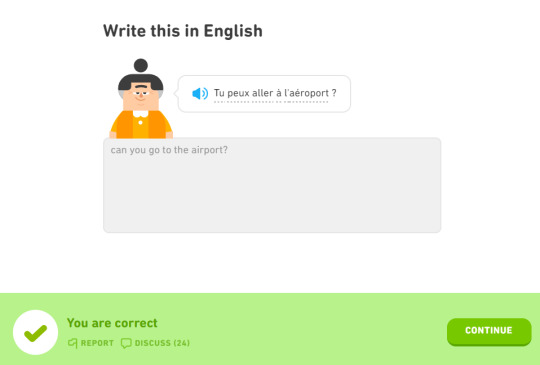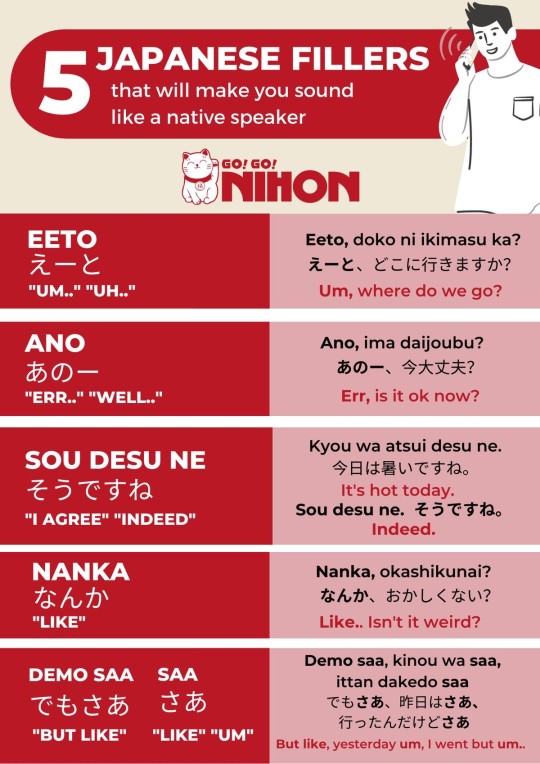Langblr // Hi! I speak spanish - english and I'm learning french. I post every language resource I find, check out my tags page :) And welcome to my blog~!
Last active 2 hours ago
Don't wanna be here? Send us removal request.
Text
ultimate character development template
basics
name: meaning of name: nicknames/titles: age: gender: location: birthday: strengths + example where it's shown: weaknesses + example where it's shown: how it affects others:
emotional depth
attachment style + how it manifests in the story: physical fear: emotional/abstract fear: happy memory: sad memory: object of significance: philosophical outlook/belief: what characters are ignorant about themselves: how confident are they: goal: long-term dreams: what they're embarrassed/ashamed to tell others about: regrets: source of pride: source of misery: what they admire above all else: do they believe in fate:
personality
mbti: enneagram: big five: character archetype: star sign: who they pretend to be on the outside: who they actually are/how they feel towards the mask: mental health conditions: how it manifests for them: iq: eq: humour: reputation:
habits
bad habits: mannerisms when stressed: mannerisms when content: mannerisms when scared: mannerisms normally: verbal mannerisms/distinctive speaking style: how do they move across a room: what do they say and what remains unsaid: how they express love: hobbies:
appearance
defining features: eye shape + colour: hair texture + colour: skin texture + tone: vibe: height: build: clothing: any bodily disfigurement (scars, etc.): overall attractiveness: their opinion on their appearance: appeals to:
relationships
who they trust most: what they wish they could do for them: what's holding them back: who they hate most: what they wish they could do to them: what's holding them back: relationship with the protagonist: relationship with the antagonist: siblings: relationship with them: parents/step-parents: relationship with them: previous broken relationships: why did it break: what others expect of them: who believes in them: their mentor character/who they look up to: political/religious/other affiliations: what makes them different from every other character: non-human relationships + why: romantic "type" + why: relationship dynamics:
backstory/background
primary emotion towards their past: primary feelings while in their past: where did they grow up: defining incidents: earliest childhood memory: saddest memory: happiest memory: major accomplishments: their opinion on it: notable people in their backstory: effect on them today: trauma: what have they already lost: financial circumstance:
progression
why are they important (eg. why're they the only one able to do something?): what do they learn about themselves throughout the story: what do they learn about the world: how do they feel towards their newfound knowledge: character arc (positive, negative, neutral): how relationships change because of their actions: what mistakes do they make: what scene is their character highlighted: do they get what they want: why or why not: what happens to them after the story ends:
15K notes
·
View notes
Text
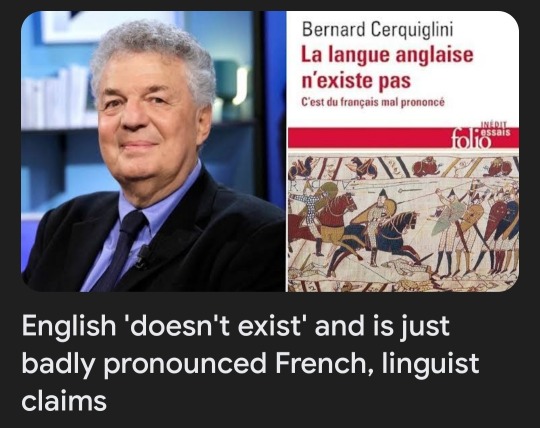
I have a linguistics degree so I can also claim insanely wrong things. French is just badly pronounced Latvian.
5K notes
·
View notes
Text
Character trait vocabulary in German
Der Charakter - character, personality Der Charakterzug - character trait Die Eigenschaft - feature, characteristic Fleißig - diligent, hard-working Aktiv - active Unternehmungslustig - adventurous, enterprising Streng - strict Scheu - shy Hilfsbereit - helpful Aufgeschlossen, offen - open, approachable Hilflos - helpless Lebhaft - lively Energisch - energetic Unhöflich - rude Unzuverlässig - unreliable Ungerecht - unjust, unfair Unehrlich - dishonest Unsympathisch - unsympathetic Unpünktlich - unpunctual Unsicher - uncertain, insecure Unfreundlich - unfriendly Zerstreut - absentminded Lustig - funny Empfindlich - sensitive Langsam, träge - boring Still - quiet, silent Humoristisch - humorous Unordentlich - untidy Schlecht - bad Schlecht gelaunt - in a bad mood Humorvoll - humorous Humorlos - humorless Skrupellos - unscrupulous Gut - good Gut gelaunt - in a good mood Gemein - mean Fröhlich - cheerful Eifrig - avid, eager Egoistisch - egoistic Selbstständig - independent Selbstsicher - self-confident Flexibel - flexible Grausam - cruel, callous Vernünftig - reasonable, sensible Steif - stiff, rigid Neidisch - envious, jealous Lieb - lovable, sweet Höflich - polite Ordentlich - tidy, orderly Ungeduldig - impatient Geduldig - patient Faul - lazy Zuverlässig - reliable, trustworthy, dependable Interessant - interesting Nett - nice Gerecht - just, fair Glücklich - happy Unglücklich - unhappy Passiv - passive Ängstlich - fearful, anxious Zurückhaltend - reserved, Munter - merry, awake, brisk, cheery Gesprächig - talkative Ruhig - calm, quiet Unruhig - restless, noisy Ehrlich - honest Fair - fair Locker - relaxed Mutig - courageous Frech, unverschämt - cheeky, rude Traurig - sad Großzügig - generous; tolerant, open-minded Intolerant - intolerant Tolerant - tolerant Sparsam - economical, thrifty Sympatisch - sympathetic Effektiv - effective Temperamentvoll - temperamental Pünktlich - punctual Dumm, blöd - stupid Langweilig, uninteressant - boring Unzufrieden - discontent, dissatisfied Zufrieden - content, satisfied Schüchtern - shy Neugierig - curious Bescheiden - modest, humble Schweigsam - silent Ernst - serious Klug - smart Böse - evil Lebhaft - lively, active Intelligent - intelligent Überheblich - arrogant Stolz - proud Verständnisvoll - understanding Freundlich - friendly Sich benehmen - to behave Sich verhalten - to behave
474 notes
·
View notes
Note
can you please make a list of really popular french songs? like, the type of songs that if you play them at a party in france almost everybody knows all the words and can dance to them.
Hi, this has been taking root in my asks for a while and I’m sorry but this is a hard question; people born in Nice in the 60s and in Trappes in the 90s will have extremely different references. And the dancing criteria makes it worse.
What people are likely to know, regardless of social context: the most famous songs of Piaf (La vie en rose, Mon manège à moi, maybe Milord), Aznavour (La bohème, Hier encore, Emmenez-moi), Brel (La chanson des vieux amants, Ne me quitte pas, Quand on a que l’amour), Gainsbourg (La javanaise, Je suis venu te dire que je m’en vais, Le poinçonneur des lilas), Brassens (La mauvaise réputation, Les copains d’abord, Gare au gorille), etc.
Stuff a bit less old (to not say younger, as I’m talking 80s): Michel Berger (Le paradis blanc, La groupie du pianiste), Indochine (L’aventurier, J’ai demandé à la lune, Trois nuits par semaine), France Gall (Ella Elle l’a, Il jouait du piano debout, Poupée de cire), Daniel Balavoine (Le chanteur, L’aziza, Mon fils ma bataille), Joe Dassin (Et si tu n’existais pas, A toi, Pour un flirt avec toi), etc.
Then: Jean-Jacques Goldman (Je te donne, Là-bas, Quand la musique est bonne, Au bout de mes rêves), Mylène Farmer (Désenchantée, Libertine, Sans contrefaçon), Garou (Seul, Sous le vent, Belle), Céline Dion (Pour que tu m’aimes encore, On ne change pas, S’il suffisait d’aimer), Florent Pagny (Savoir aimer, Ma liberté de penser, Là où je t’emmènerai), etc.
2000s: BB brunes’ Dis-moi, Kyo’s Dernière danse, L5′s Toutes les femmes de ta vie, Larusso’s Tu m’oublieras, Matt Pokora’s Elle me contrôle, Renan Luce’s La lettre, Superbus’ Lola, Tragédie’s Hey ho, Diam’s La boulette, Fatal Bazooka’s Mauvaise foi nocturne, Rose’s La liste, etc.
2010s: Sexion d’assaut’s Avant qu’elle parte and Désolé, Colonel Reyel’s Celui and Aurélie, Mika’s Elle me dit, Stromaé’s Alors on danse and Papaoutai, Kendji Girac’s Andalouse and Bella, Louane’s Jour un and Avenir, etc.
Currently are huge: Aya Nakamura’s Jolie nana, Hatik’s Angela, Bosh’s Djomb, Vitaa and Slimane’s Versus, Jul’s La machine, Maes’ Les derniers salopards, Gambi’s La vie est belle.
Now-
I was born in 1992. There’s a lot of stuff I’ve never heard of because I’m not that interested in current stuff - I’ve never listened to Jul, for example. Had you asked your question to a 14-year-old, they would probably mention him very quickly. What I can say is that people my age would destroy everything up to the 2000s at a karaoke session, and then start having issues; whereas my younger sibling, eight years younger than me, would have the exact opposite problem. Why? Because I heard the very old stuff on the radio, before the Internet even happened; nowadays, people don’t listen to the radio anymore, they go on Youtube or Spotify, so they don’t experience that stuff.
So I’m afraid there’s not really *one* answer to that question, except maybe if you want to focus on lame stuff DJs play at parties when people are starting to be bored, like Les démons de minuit ou Partenaire particulier. Those will get everybody on their feet. But that’s probably not what you’re looking for!
Hope this still helps! x
601 notes
·
View notes
Text
Daily French Etymology #22
Douleur (pain)
Douleur comes from the Old French dolur, from the Latin dolor which meant pain, as well as anger. Dolor itself came from the Proto-Italic root *dolōs, from the PIE root *delh₁- meaning to split or divide.
* indicates a reconstructed word
71 notes
·
View notes
Text
How to Write a (Healthy) Relationship: An Illustrated Guide.
@trappedinfairytales asked:
Hi! Let me start by saying this blog is a god send for more than just writing skills, I even turned on your notifications 😂 Anyway, I apologize if you’ve already done a post like this, but I was wondering if you could do a post with different kinds of healthy relationships? I feel like it would help, because even though I am a bi girl, I’ve never been in a relationship so sometimes I don’t know where to start 🙈
@magnificentcollectiverebel asked:
Bro bro I’m trying to write a cute lil romance do you have any tips please I didn’t realize writing needs so much planning also thank you for all the tips on characters both of my love interests are girls the tips help
Excellent questions! Healthy relationships, particularly ones involving queer people, are something I’m pretty sure we all could use.
Now, there has been a request for me to make a post about LGBTQ characters, so I will talk more exclusively about queer relationships then; sufficed to say this post applies to all types of healthy relationships. Though most of the examples I use are admittedly queer – you could say I’m BI-ased on the matter. (I’ll see myself out.)
In the meantime, here are my personal rules of thumb for writing a ship-worthy romance.
1. ��Allow opposites to attract (but do it right!)
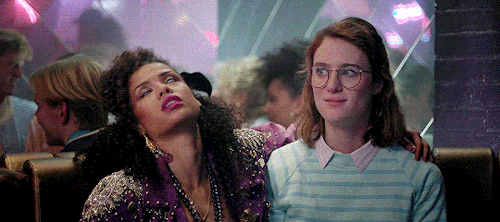
No, I’m not talking about two characters who have no common ground or core values; I’m talking about two characters whose traits compliment one another.
Maybe one’s analytical and the other’s impulse driven. Maybe one’s a happy ray of sunshine and the other’s a grump. Maybe one’s an idealist and the other’s a realist.
Do you see pattern here? Not only do these proposed pairings balance each other out, but their mutually beneficial to each other: an impulse-driven character will add spontaneity to the life of their analytical partner, while the analytical character will keep the impulsive one from leaping off cliffs; the happy ray of sunshine will brighten up the life of the grump, while the grump will keep the ray of sunshine aware of life’s problems; the realist will keep the idealist weighted in reality while the idealist will help them to get off the ground.
Moreover, as each of them has something the other lacks and needs, it creates a natural magnetism between them.
Just think of it like the old Greek myth, in which mankind was split in two by Zeus and each of them are searching for their other half to become their best selves.
In terms of writing romance, pretend your two characters are two halves of a greater whole, and allow them to complete each other.

2. Create chemistry and attraction (but remember that it does not immediately equal love.)

If I had to pinpoint the source of my frustration with the depictions of attraction in literature, particularly YA romantic novels, I would say it roughly narrows down to the fact that the attraction, as it’s depicted, is largely extremely vapid and hollow.
Two characters that hate each other are not going to have true chemistry or be compatible for a long-term relationship, even if one of them is equipped with excessive depictions of eye-color and can smirk like a champ.
To create true chemistry, the readers have to crave the characters’ interactions; they have to root for them to get together, not role their eyes when they finally do.
So how do you do this? Well, first and foremost, there are different and better ways to convey attraction than the tried and true “cerulean orbs” and obnoxious smirks and whatnot.
First and foremost, save strong, sensual language, like “she leaned in close, and I tasted her breath on mine,” “My heart thudded painfully in my chest as I felt her body press against mine,” et cetera for when your characters are actually about to do the deed. That way, your audience isn’t desensitized to it and are more likely to root for your characters when they finally shack up.
When your characters first meet, keep the language light and playful. Unless you’re doing a modern, queer reenactment of Romeo and Juliet (which sounds pretty awesome, honestly – so long as the ending is happier) most people aren’t righting sonnets about people they first meet.
Let your POV character check out her prospective partner if you so desire, but press hold on the purple prose.
For instance, instead of something like this:
“Long lashes fluttered like the wings of the butterfly over peridot orbs, a faint gold dusting over the graceful slope of her nose. Red lips as ripe as strawberries glistened in the sun, and a waterfall of gilded hair fell over her slender shoulders.”
Try something more along the lines of this:
“She had striking green eyes framed with long lashes, a smattering of freckles over the bridge of her nose. Her hair was a thick mane of unkempt gold, and when she saw me, she smiled. Her lips were plump and strawberry pink.”
If you’ll notice, both passages convey basically the same thing (i.e. that this narrator finds her prospective gal-pal attractive): one is just significantly less pretentious than the other, and in my opinion, a lot more readable.
As the story continues, you’ll likely want to build up the tension as the character’s attraction to one another grows. Maybe your character starts to get butterflies in their stomach whenever their love interest is around, or there’s a tension-filled moment where their skin brushes together. Maybe they’ve found themselves constantly looking at their lips and mouths.

(I talk some more about building sexual tension in this post here.)
Keep in mind while developing your characters’ chemistry into something greater that contrary to what most YA novels will teach you, attraction isn’t love. Finding one another’s meatsuits aesthetically pleasing isn’t reasonable merit for a long-term commitment. Love, generally speaking, is often just that: it’s a commitment. It takes time to cultivate, and it isn’t fun 100% of the time. But people stick with it anyway, because ideally, the payoff is worth it.
And that’s a good thing. As an author, you get to build up on your character’s relationship, challenge it, make it stronger. And that’s a lot of fucking fun. Plus, you get to write all the cute romantic shit in the times in between.
If you are implying love at first sight (which, sappy bitch I am, I’m a bit of a sucker for) feel free to imply as such, but I’m still inclined to think short, sweet descriptions work best: “Their eyes met, and for a moment, Ishmael could have sworn the earth had come to a stop while the world kept moving.” Or perhaps, “Luna looked at Misery for the first time, and knew right away this was the woman she was going to marry.”
Now keep moving. Too strong language too fast weighs your story down, keeps the reader from relating to it, and detracts from the satisfaction of when your characters finally end up together.
3. Let your characters’ relationship be built on friendship.
The other day, I got lunch with my best friend and her new girlfriend. A year or so ago, she’d gotten out of a really toxic relationship that she’d been in since I’d first known her.
I’d thought she was happy (because at the time, I didn’t have anything to else to compare it to) but seeing her with her new girl was like seeing the sunrise for the first time, if you’ll pardon the floral language.
We laughed, we made jokes, we all checked out the hot waitress together. Overall, it was just like spending time with two close friends – just, y’know. They happened to be in a romantic relationship with each other. And that, let me tell you, makes all the difference in the world.
I’ve said this before, and I’ll say it again: all the sexual attraction in the world will not make up for the lack of a strong basis of mutual respect, affection, and camaraderie.
Sorry to burst your bubble, heterosexual authors of the mainstream publishing world: even if they kiss on the beach in the rain, even if the music swells every time they make contact, even if it’s a love story for the ages, that means your characters actually have to be friends.
Queer authors, I find, tend to be a little more attune to this concept than their straight counterparts (perhaps because it’s in our nature to question preconceptions of what constitutes a healthy relationship) but it’s still good to keep this in mind when you’re writing your characters’ relationship.
So ask yourself these questions:
Do your characters have any shared interests or hobbies?
Do they actively take interest in their partners’ hobbies?
Do they crack each other up, tell each other jokes? Exchange playful jibes that aren’t pointed or hurtful?
Do they do the above more than they fight and bicker?
Would both your characters feel comfortable with their partner seeing them at their most comfortable (e.g. stuffing their faces with Nutella and watching bad reality shows)?
If so, would they join in?
If one partner feels hurt, neglected, or insecure, will the other partner take notice and attempt to comfort and reassure them?
Can they confide in each other?
Do they share the same goals, desires, and core values?
If you answered ‘yes’ to most of these questions, congratulations: your characters’ romance is more akin to Gomez and Morticia than Edward and Bela. And believe me, that’s a good thing.
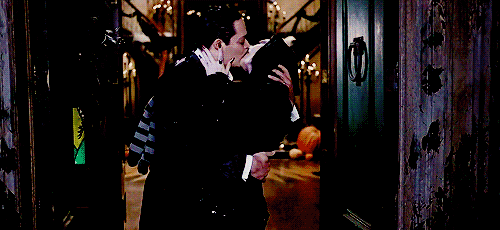
4. Make sure your characters are more or less equals.
She’s a ridiculously hot, intelligent, accomplished twenty-something. He’s a an out-of-shape manchild in his thirties who makes lots of fart jokes and probably has a neck-beard.

This pairing probably would raise quite a few eyebrows in real life, but it happens so much in movies and TV (particularly comedies) that no one even questions it. Do I really need to remind you that the entertainment industry is largely male dominated?
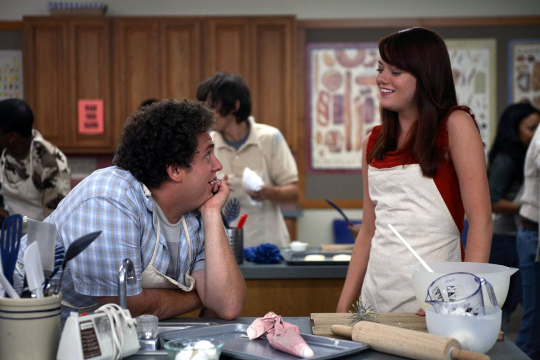
Granted, I’m pretty sure you folks are both queer gals (like yours truly), so such a blaring example of male wish fulfillment is unlikely. But it’s still good to remember that, one way or another, a ship-worthy pairing is probably going to be comprised of equals.
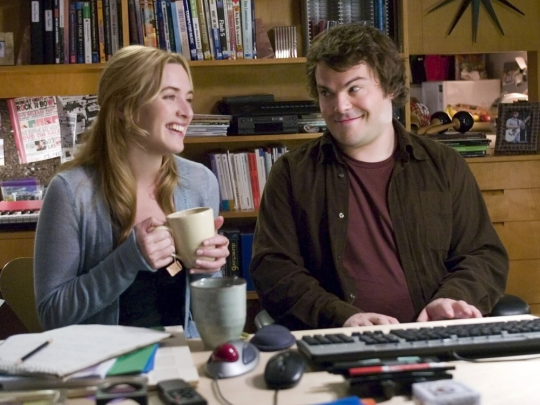
Okay, you get the picture. It happens a lot.
This doesn’t always equate to characters being equal in conventional attractiveness: movies such as Legally Blond and Hairspray, for example, both have adorable pairings featuring lovely plus-sized/chubby women and thinner, more conventionally attractive men. Moreover, they don’t leave anything resembling the bad taste in my mouth that the aforementioned Manchild + Hot Girl trope does.
Even the chubby, kindhearted hillbilly ending up with a much more conventionally sexy girl in Tucker and Dale vs. Evil didn’t particularly bother me (even though there were definitely some sexist tropes), especially considering the bad guy in the film was a quintessential privileged, entitled fuckboy with a white knight complex.
But your characters will need to be more-or-less equals in terms of positive attributes. Even if they differ significantly in conventional attractiveness or status, they’ll probably roughly even in out in terms of intelligence, good manners, kindness, conscientiousness, et cetera.
It’s also best to avoid blaring power imbalances when writing healthy romances. I’m inclined to avoid huge age differences (though there are instances where it can be healthy), and definitely avoid huge age differences where one of the characters is underage.
Basically, if your pairing looks like they could belong in a Woody Allen movie, no dice. (If you think I’m kidding, just look at his fifty-six-year-old self with a nineteen-year-old love interest in Husbands and Wives.)
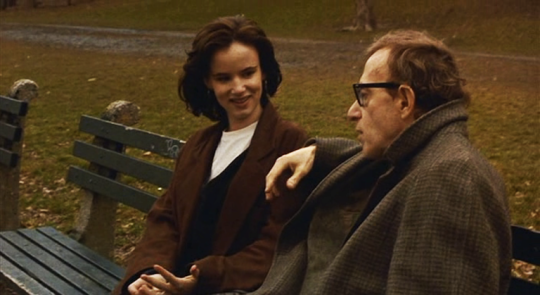
Differences in wealth and status are also generally be okay, but be conscientious that they can easily become abusive if one person misuses their power (lookin’ at you, 50 Shades.)
Last, and certainly not least, your characters will almost definitely need to be equals in terms of three-dimensionality. No exceptions.
Which brings me to my final point:
5. Give your love interest purpose (outside of being a love interest.)
I’ve talked about this before, but why do you think there’s such a huge following for Kirk and Spock’s romance (besides that one episode where Spock gets super horny and the two of them role around in the sand for twenty minutes), when there are droves of female love interests for both?
Why are Dean and Castiel AO3′s most popular pairing (besides their blaring sexual tension and the recurring prevalence of romantic tropes throughout their narrative), when the following for their more canonically established relationships are practically none existent?
What about Holmes and Watson (besides the blaring case of queerbaiting in the BBC version, and the fact that Doyle’s Sherlock may very well have been homosexual), or Steve Rogers and Bucky and Barnes (besides the fact that the writers somehow find the possibility of making Steve a Nazi less offensive than having him love a man)?
Internalized misogyny and fetishization of MLM (particularly by straight women) could very well be a factor, but as an extremely bi gal myself, I’m inclined to think that it’s just plain easier to get behind a relationship when both parties are equals in complexity and charisma, rather than the conventionally attractive blank sheets of paper that unfortunately characterize most female love interests in popular media.
It also works the other way: why do you think everyone hates Kara and Mon El’s romance so much? Because Kara is a wonderfully developed, benevolent character (surrounded with equally developed, benevolent characters who would work much better as love interests, I might add) and Mon El is a callous, entitled jerk who only wants to become a hero to woo his prospective girlfriend.
This is also why heterosexual pairings with equally well-developed characters have no problem at all finding followings. Just look at Han and Leia, Mulder and Scully, Booth and Bones, Monica and Chandler – both characters hold roughly an equal amount of weight in the narrative, so we give a fuck what happens to both of them.
Healthy, well-balanced WLW romances with happy endings are difficult to find in media, but some of my favorite examples of ship-worthy pairings that fit this criteria are Korra and Asami from Legend of Korra, Willow and Kennedy from Buffy (even though I’ll never forgive them for what they did to Tara), Carol and Susan from Friends, and Alana and Margot from Hannibal.
And of course, there’s these lovely ladies from Sense 8.
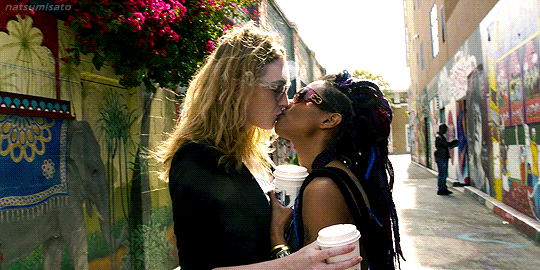
Bottom line is, make sure both your characters are important; don’t follow the trend of meaningless, forced heterosexual romances in media in which one party could almost invariably be replaced with a sexy lamp or a dildo.
Make the love interest a hero in their own right, and the audience will root for them.
Best of luck, and happy writing! <3
3K notes
·
View notes
Text
it really is next to impossible to write realistic sibling dialogue, I just passed my brother on the stairs and instead of greeting each other like human beings I said ‘born survivor’ and he said ‘youtube rewind. let’s set it to rewind.’ like you ain’t gonna find that shit in a novel
236K notes
·
View notes
Note
salut maman!! what are some untranslatable french words?? like, words whose meanings just can't be conveyed using an english word? (i hope this makes sense!)
Hello child,
I’ve been thinking about this and :
Modal verbs (must, shall, should, can, will…). We use regular verbs instead : I must go is Je dois y aller (v. Devoir),
Expressions Fait chier: it’s annoying; Être à l’ouest: be spacing out + doing stuff wrong bc you have no idea; J’en ai ras-le-bol: I’m done with it; Voilà; N’importe quoi: anything + bullshit (1/ - Qu’est-ce que tu veux manger? - N’importe quoi. 2/ - Une fois je suis allée sur la lune en volant et un homme m’attendait, c’était Albert Einstein et tout le monde a applaudi. - Pff, n’importe quoi.)
Verbs Flâner (to stroll around daydreamingly); Chanter en yaourt: singing a song without knowing the lyrics; Crapoter: smoking without inhaling; Profiter: to fully enjoy something; Râler: a mixture of whining and complaining; Cartonner: to have a lot of success; Bricoler: DIY, craftmanship, basically doing manual work in the house (fix or create),
Nouns Gueule, f: an animal’s mouth or, rudely, a person’s; Spleen, m: specific type of melancholia (see Charles Baudelaire’s Spleen de Paris); Dépaysement, m: when you’re elsewhere and it feels new and different; Savoir-faire, m: the notion of mastering something / Je-ne-sais-quoi, m: a certain unidentified something,
Chez (At someone’s): Je suis chez le médecin, Si (insisting yes),
Many weird, funny or familiar words…
Hope this helps! x

575 notes
·
View notes
Photo

I found this online and I love it.
#deutsch#deutsch langblr#german vocab#learning german#language learning#languages#vocabulary#vocab#german langblr#langblr
33K notes
·
View notes
Text
Petition to bring back indigenous languages before they cease to exist!!!
i really want french language to become official international language instead of english ... so badly.
1K notes
·
View notes
Text
Avoir- expressions
Avoir quelqu’un à l’oeil - keeping an eye on someone
Avoir bon coeur - being good-hearted
Avoir bon dos - being a good excuse
Avoir quelqu’un dans le nez - being mad at someone
Avoir d’autres chats à fouetter - having better things to do
Avoir de la merde dans les yeux - not seeing the obvious (rude)
Avoir de la veine - being lucky
Avoir des cornes - being cheated on
Avoir des couilles - being brave (rude)
Avoir des étoiles dans les yeux - being amazed
avoir des fourmis - having pins and needles
Avoir des yeux derrière la tête - being able to see abs everything
Avoir du bol/du pot - being lucky
Avoir du chien - looking good (old)
Avoir du cran - being brave
Avoir du nez - having a good intuition
Avoir du temps à perdre - having time to waste
Avoir été bercé trop près du mur - being another level of dumb
Avoir faim - being hungry
Avoir la chair de poule - having goosebumps
Avoir la conscience tranquille - having a clear conscience
Avoir la gueule de bois - being hangover
Avoir la langue bien pendue - being chatty
Avoir la main - being the one who plays/leads (in games, usually)
Avoir la main verte - being a good gardener
Avoir la patate/la pêche - being smiley, happy
Avoir la peau dure - being hard to break
Avoir la peur au ventre - being super scared
Avoir la puce à l’oreille - having suspicions
Avoir le bras long - having a lot of influence
Avoir le cafard - feeling blue
Avoir le cœur gros - feeling sad
Avoir le compas dans l’œil - having an accurate eye (measurements)
Avoir le feu au cul - being horny
Avoir le sang chaud - being hot-blooded
Avoir le vent en poupe - being successful
Avoir les dents du fond qui baignent - being drunk
Avoir les dents longues - being overly ambitious
Avoir les foies - being scared (old)
Avoir les jetons - being scared
Avoir les mains liées - having one’s hands tied
Avoir les oreilles bouchées - having blocked ears
Avoir les oreilles qui saignent - having bleeding ears after hearing something awful

Avoir les oreilles qui sifflent - having ringing ears
Avoir les yeux plus gros que le ventre - taking too much food
Avoir les yeux qui saignent - having bleeding eyes after (…)
Avoir l’estomac dans les talons - being super hungry
Avoir l’œil - having a good eye (for outfits, flowers, etc)
Avoir mal aux cheveux - being in pain after a night of drinking
Avoir mangé du lion - being super energetic
Avoir soif - being thirsty
Avoir toute sa tête - being mentally heathly
Avoir un balai dans le cul - being uptight
Avoir un chat dans la gorge - having a frog in the throat
Avoir un cœur d’artichaut - falling in love easily
Avoir un coup de foudre - falling in love at first sight
Avoir un mal de chien - having a hard time doing something
Avoir un œil qui dit merde à l’autre - squinting (rude)
Avoir un oursin dans sa poche - being miser
Avoir un poil dans la main - being lazy
Avoir un polichinelle dans le tiroir - being pregnant
Avoir une araignée dans le plafond - being nutty
Avoir une brioche au four - being pregnant
Avoir une case en moins - having a screw loose
Avoir une cervelle de moineau - forgetting things easily
Avoir une dent contre quelqu’un - being mad at someone
Avoir une faim de loup - being super hungry
Avoir une mémoire d’éléphant - having a great memory
Avoir une peur bleue - being super scared
En avoir plein le cul - being super annoyed (rude)
Ne pas avoir gardé les cochons ensemble - way to tell someone who’s being overfriendly or touchy to back off
Ne pas avoir les yeux en face des trous - being too tired to think straight
1K notes
·
View notes
Text
un ange- angel
un démon- demon
un diable- devil, a dolly (used for moving heavy furniture/boxes)
une divinité- a divine being, a god
la cruauté- cruelty
spirituel.le- spiritual
infernal.e- hellish, infernal
divin.e- divine, godly
surnaturel.le- supernatural
satanique- satanic
terrestre- earthly, terrestrial
humain.e- human
déchoir- to fall (metaphorically), to strip/revoke, to diminish
s’emporter- get worked up, overreact
manger le diable et ses cornes- to eat a particularly large amount (to eat the devil and his horns)
#french#french language#learning languages#langblr#language#languages#vocab#french langblr#french vocabulary
50 notes
·
View notes
Text
Basic Kanji Book Vol. 1 - Lesson 1 Vocabulary
日
くんよみ: ひ|~び|-か
オンヨミ: ニチ|ニ|-ジツ
日 ・ひ ・ the sun; day
日本・にほん|にっぽん・ Japan
日曜日・にちようび・ Sunday
三日・みっか・ the 3rd day
月
くんよみ: つき
オンヨミ: ゲツ | ーガツ
月・つき・ the moon; month
月曜日・げつようび・ Monday
一月・いちがつ・ January
一か月・いっかげつ・ one month
木
くんよみ: き
オンヨミ: モク|ボク
木・き・ a tree
木曜日・もくようび・ Thursday
木村・きむら・ a Japanese surname
山
くんよみ: やま
オンヨミ: サン
山・やま・ a mountain
富士山・ふじさん・ Mt. Fuji
山下・やました・ a Japanese surname
火山・かざん・ a volcano
川
くんよみ: かわ|-がわ
オンヨミ: セン
川・かわ・ a river
ナイル川・ないるかわ・ the Nile River
田
くんよみ: た|-だ
オンヨミ: デン
田んぼ・たんぼ・ a rice field
山田・やまだ・ a Japanese surname
田中・たなか・ a Japanese surname
人
くんよみ: ひと
オンヨミ: ジン|ニン
人・ひと・ man; a person
三人・さんにん・ three people
日本人・にほんじん・ a Japanese
口
くんよみ: くち|-ぐち
オンヨミ: コウ
口・くち・ a mouth
入口・いりぐち・ an entrance
出口・でぐち・ an exit
人口・じょんこう・ population
車
くんよみ: くるま
オンヨミ: シャ
車。くるま・ a car
自動車・じどうしゃ・ a car; an automibile
電車・でんしゃ・ a train
門
くんよみ: かど
オンヨミ: モン
門・もん・ a gate
専門・せんもん・ a specialty
Phrases
きょうは3月15日です ・ Today is the 15th of March
あの人は山川さんです ・ That man over there is Mr. Yamakawa
山川さんは日本人です ・ Mr. Yamakawa is a Japanese
あの山筑波(つくば)山です ・ That mountain over there is Mt. Tsukuba
あの川は利根(とね)川です ・ That river is the Tone River
川田さんの専門は車です ・ Mr. Kawada’s specialty is cars
201 notes
·
View notes
Video
144K notes
·
View notes
